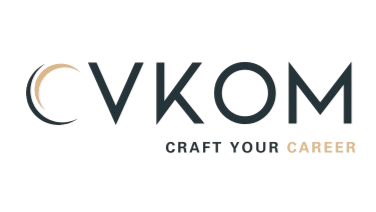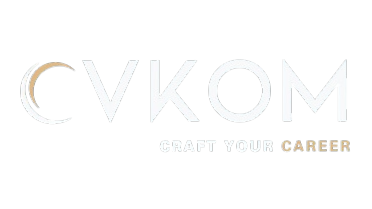Certifications and awards enhance your resume's credibility by demonstrating expertise and achievements. Strategically include relevant certifications and awards in a dedicated section or within relevant sections like education or experience. CVKOM provides tools and templates to effectively showcase these credentials and increase your chances of landing your desired role.
How to Add Certifications and Awards to Your Resume: A Guide by CVKOM
Certifications and awards can significantly boost the credibility and appeal of your resume. These sections demonstrate your expertise, dedication, and achievements in your field, making you a stronger candidate. At CVKOM, we provide tools and tips to help you effectively showcase certifications and awards, ensuring your resume stands out.
Why
Certifications and Awards Matter
Certifications validate your skills
and knowledge, showing employers you have formal training or qualifications.
Awards highlight your accomplishments and distinguish you from other
applicants. Including them strategically in your resume can:
- Enhance your credibility.
- Showcase specialized skills or achievements.
- Prove your commitment to professional growth.
Where
to Add Certifications and Awards
Certifications and awards can be
listed in various sections of your resume, depending on their relevance and
importance:
- Dedicated Section:
Create a separate “Certifications” or “Awards” section if you have
multiple entries.
- Education Section:
Include certifications earned as part of your academic journey.
- Experience Section:
Mention awards or certifications directly related to a job or project.
Steps
to Add Certifications to Your Resume
1.
Create a Separate Section
Label it Certifications or Professional
Certifications and place it after your education or experience section.
2.
List Certifications in Reverse Chronological Order
Start with the most recent and
relevant certification.
3.
Include Key Details
For each certification, provide:
- Certification Name
- Issuing Organization
- Date Earned or Validity Period
- Optional: License Number or Credential ID (if
applicable)
Example:
- Google Analytics Certified | Google | March 2023 – March 2025
- Certified Public Accountant (CPA) | American Institute of CPAs | Issued: June 2020
4.
Highlight Relevant Certifications
Focus on certifications that are
directly related to the job or industry. Irrelevant or outdated certifications
can clutter your resume.
Steps
to Add Awards to Your Resume
1.
Create a Separate Section
Label it Awards and Honors, Professional
Achievements, or simply Awards.
2.
Prioritize Relevant Awards
List awards that are most relevant
to the position you’re applying for.
3.
Include Key Details
For each award, provide:
- Award Name
- Issuing Organization
- Date Received
- Optional: Brief Description or Context (if the name
isn’t self-explanatory)
Example:
- Employee of the Month
| ABC Corporation | July 2023
- Best Graphic Design Project | Creative Design Awards | October 2022
4.
Incorporate Awards into Experience or Education
If the award relates directly to a
specific role or academic achievement, mention it within the relevant section.
Example:
- Marketing Intern
| XYZ Agency | Jan 2023 – May 2023
- Awarded Outstanding Intern of the Year for
delivering a social media campaign that increased engagement by 40%.
Pro
Tips for Adding Certifications and Awards
- Be Concise:
Provide just enough detail to convey the significance of the certification
or award.
- Focus on Relevance:
Highlight certifications and awards that directly enhance your
qualifications for the job.
- Keep it Up to Date:
Remove expired or outdated certifications unless they remain highly
relevant.
- Use Keywords: Incorporate industry-specific keywords to enhance ATS (Applicant Tracking System) compatibility.
- Visual Appeal:
Use professional formatting, such as bullet points, to maintain clarity
and readability.
Certifications
to Consider Adding
Depending on your field, here are
some examples of certifications you might include:
Technology
and IT:
- CompTIA A+, Network+, or Security+
- AWS Certified Solutions Architect
- Cisco Certified Network Associate (CCNA)
Healthcare:
- Basic Life Support (BLS)
- Certified Nursing Assistant (CNA)
- Advanced Cardiac Life Support (ACLS)
Creative
and Design:
- Adobe Certified Expert
- Google UX Design Certificate
- Certified Digital Marketing Professional (CDMP)
General:
- Project Management Professional (PMP)
- Six Sigma Green Belt
- Language Proficiency Certificates (e.g., TOEFL, IELTS)
Awards
to Consider Adding
Awards can come from various
sources, including professional organizations, academic institutions, or
employers:
Academic
Awards:
- Dean’s List
- Summa Cum Laude or Magna Cum Laude
- Scholarship Awards
Professional
Awards:
- Employee of the Month
- Sales Achievement Awards
- Industry-Specific Awards
Creative
Awards:
- Design Competitions (e.g., “Best Logo Design”)
- Film Festival Awards
- Writing or Content Creation Awards
Why
Choose CVKOM for Resume Building?
At CVKOM, we offer tools and
features to help you effectively showcase your certifications and awards. Our
platform includes:
- Customizable Templates: Designed to highlight key achievements.
- AI Suggestions:
Tailored advice on which certifications and awards to include.
- ATS Optimization:
Ensure your resume passes automated screenings.
- Affordable Pricing:
Access premium features at competitive rates.
Conclusion
Adding certifications and awards to
your resume is an excellent way to demonstrate your qualifications and stand
out to employers. By following this guide and leveraging the tools at CVKOM,
you can create a resume that effectively showcases your achievements.
Start building your optimized resume
today at CVKOM, where success begins with a standout resume!




